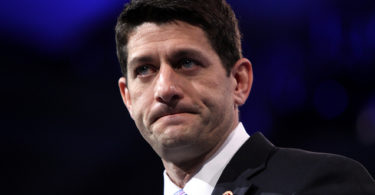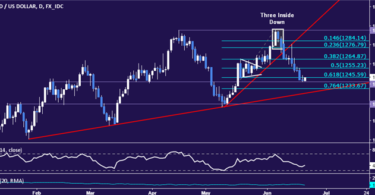Dear Commissioners:
I know approving a Bitcoin ETF isn't an easy decision.
But it's been five years since Cameron and Tyler Winklevoss filed the first Bitcoin exchange-traded fund proposal. Much has changed in the cryptocurrency world since then.
It's time to approve a Bitcoin ETF.
You've been very clear about why you've rejected the 13 Bitcoin ETF proposals so far – concern over manipulation in Bitcoin spot markets outside the United States, a lack of “surveillance-sharing agreements” between the exchanges responsible for the ETF proposals and external Bitcoin exchanges, and a lack of regulatory oversight in many Bitcoin markets. You've also expressed misgivings about the relatively thin trading in the Bitcoin futures markets.
I know your job is to protect investors, but here you seem a bit… overprotective.
Your hard line against manipulation is understandable, but where's that concern when it comes to other markets?
Take precious metals – gold in particular…
There's Manipulation Everywhere
There's plenty of evidence suggesting that gold prices have been manipulated for years, but that didn't stop you from approving the first gold ETF – the SPDR Gold Trust (NYSEArca: GLD) -back in 2003, and more than 30 since.
Wall Street manipulates stock prices as well, often in clever ways you can't detect by monitoring the markets. Yet that hasn't slowed the approval of hundreds of stock-based ETFs.
I'm not saying you tolerate such behavior – you're pretty good about going after bad actors. I'm just saying the knowledge that manipulation happens in these markets hasn't been an issue when it comes to the approval of investing products like ETFs.
Stunning: Get Ready for the “Big Three” Crypto Event
This strange double-standard is so obvious that one of the four members of the commission -Hester Pierce – noted it in her dissent from the July 26 disapproval of the Winklevoss Bitcoin Trust.
“If the disapproval order's rigorous standard were applied consistently, many commodity-based ETPs would be in peril, as rumors of manipulation plague many commodity markets, and surveillance-sharing agreements with regulated markets cannot eliminate the sometimes messy nature of the commodities markets,” Pierce wrote.
But Pierce went further. She said that in using the quality of the Bitcoin markets as part of the criteria, the U.S. Securities and Exchange Commission stepped beyond its limited role of ensuring fairness and transparency in the markets while seeking to combat market manipulation.
The rule, she said, concerns the ability of the exchange in question to prevent fraud and manipulation. “It says nothing about looking at underlying markets, as the Commission often has done in its [Bitcoin ETF] orders.”
Indeed, the Pierce dissent makes several strong points…
A Bitcoin ETF Would Address Low Volume Concerns
Pierce notes that most of the concerns described in the disapproval documents would be addressed by allowing a Bitcoin ETF and thus creating the sort of regulated market the Commission seems to want.
“Because the disapproval order focuses on the Bitcoin spot market, it does not give adequate weight to the important function that exchanges, as self-regulatory organizations (“SROs”), perform under our regulatory framework,” Pierce wrote.
What's more, the approval of Bitcoin ETFs at several major regulated exchanges solves the “chicken and egg” problem regarding surveillance-sharing agreements. Multiple exchanges with Bitcoin ETFs could form the sort of surveillance-sharing agreements the Commission craves.
Another complaint in the disapproval order is the lack of a “regulated market of a significant size.”
Pierce said the Bats BZX Exchange, which proposed the rule change that would permit the Winklevoss Bitcoin ETF, “would exercise the responsibilities entrusted to it as an SRO and would be subject to Commission oversight. In exercising these responsibilities, BZX would have powerful regulatory and business incentives to ensure the integrity of the products that it lists for trading.”
In other words, approving a Bitcoin ETF that will trade on a major, regulated exchange will go a long way toward solving the problems you seem most concerned about.
You note the lack of “maturity” in the Bitcoin markets as well. You suggest waiting for these markets to “grow and develop.”
But here, too, a Bitcoin ETF would serve to address the problem…
A Bitcoin ETF Would Attract Institutional Investors
Institutional investors have held off on investing in Bitcoin not because they fear the asset but because the proper vehicles and infrastructure just don't exist.
The biggest sticking point for institutional investors is the lack of trusted, professional custodians. Wall Street has plenty of these for such hard-to-store assets as gold, including State Street Corp. (NYSE: STT), Bank of New York Mellon Corp. (NYSE: BK), and JPMorgan Chase & Co. (NYSE: JPM).
A few Bitcoin startups, such as Coinbase and BitGo, have launched crypto custodial services. But getting large institutional investors to trust them will take time.
A Bitcoin ETF would help bridge the gap by allowing these large investors to gain exposure to Bitcoin without the hassle of owning it outright. At the same time, it will open the door to a class of investors whose presence will help fortify and stabilize the Bitcoin markets.
“Greater participation by institutional investors in the Bitcoin market would help to pressure exchanges to bolster their defenses against theft, encourage greater investment in custody solutions in the Bitcoin space, and make it more difficult for market manipulators to escape the notice of their fellow market participants,” Pierce wrote.
She further argues that the combination of a Bitcoin ETF and the participation of institutional investors will make crypto investing safer for retail investors.
Finally, you should approve a Bitcoin ETF to encourage innovation in the financial sector, which badly needs it.
“By suggesting that Bitcoin, as a novel financial product based on a novel technology that is traded on a non-traditional market, cannot be the basis of an ETP, the Commission signals an aversion to innovation that may convince entrepreneurs that they should take their ingenuity to other sectors of our economy, or to foreign markets, where their talents will be welcomed with more enthusiasm,” Pierce said.
I'm not suggesting you approve all of the pending Bitcoin ETF proposals, but you could prudently start with one.
And there's a logical candidate you can use to “test the waters”: CBOE/VanEck's SolidX proposal. As a joint effort of CBOE and the Van Eck investment management firm, this proposal is backed by entities you're comfortable with. Plus, it avoids the risk to retail investors by making the cost of entry a steep 25 bitcoins – only accredited investors will be eligible to participate.
But whether it's the SolidX ETF or one of the other proposals, please take action soon.
The time is ripe for a Bitcoin ETF.






